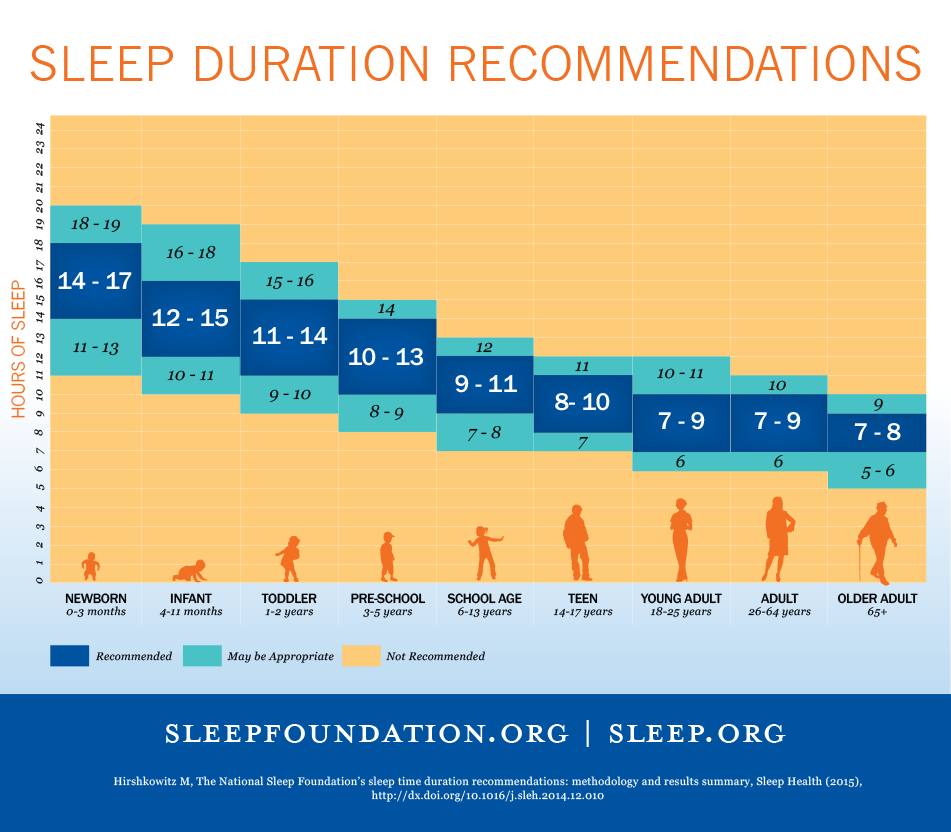Resolution: Get at least 8 hours of sleep for at least 6 days a week.
Many people stay up late each night and don’t give any thought to how many hours of sleep they might be getting. Maybe there was a homework assignment they forgot about, or maybe they spontaneously decided to hang with a friend. Either way, for most people, sleep inevitably gets thrown on the back burner in order to get more stuff done during the day. Even though each week I tell myself, “I’ll do better next week and get more sleep”, somehow it never happens. Hence why one of my New Year’s Resolutions in the health category is to get at least 8 hours of sleep for at least 6 days a week.
Despite what many college students might think, sleep is extremely important to your well-being and should be prioritized. Sleep plays a significant role in how you think, learn, react, and work during your waking hours. People who do not sleep enough over time have a higher risk of chronic illnesses such as coronary heart disease, high blood pressure, obesity and stroke. Levels of hormones that control hunger, such as leptin and ghrelin, increase with less sleep. Immune system functioning decreases with less sleep, making people more susceptible to colds and other illnesses. Energy levels are significantly decreased with less sleep, making people feel drowsy throughout the day. Imagine if you got enough sleep each night, and none of these negative effects would occur. You would be energetic, healthy, and capable of having an awesome day everyday.
So how much sleep do we need? The amount of hours needed depends on your age. Infants and children need more sleep for growth and development, while older adults need less. For college students, 7-9 hours each night is recommended. At first, getting 8 hours of sleep each night might seem impossible, but if you make it a priority, it is very achievable.

One tip that I am using to help achieve my goal of getting 8 hours of sleep is not being on my phone for 20 minutes before I go to sleep. The blue light emitted by our phone screen causes reduced production of melatonin, the hormone that regulates your sleep-wake cycle. If you make an effort to not use any devices before bedtime, your natural production of melatonin will make it easier to fall asleep and easier to wake up the next morning. This year, I am also taking a melatonin pill on nights when I need to go to sleep early and don’t think my body will be able to produce enough melatonin to help me fall asleep on my own. Another tip that is relevant to everybody is improving your time management. It is often a forgotten homework assignment or pushing something until the last minute that results in sleep loss. If you make time to complete these things during the day, you will find that it is easier to go to sleep at your intended bedtime.
Getting a good night’s sleep can improve our quality of life during the day, and it should not be overlooked. Making an effort to get more sleep can change the way you live every day, so try to prioritize it.
Be First to Comment